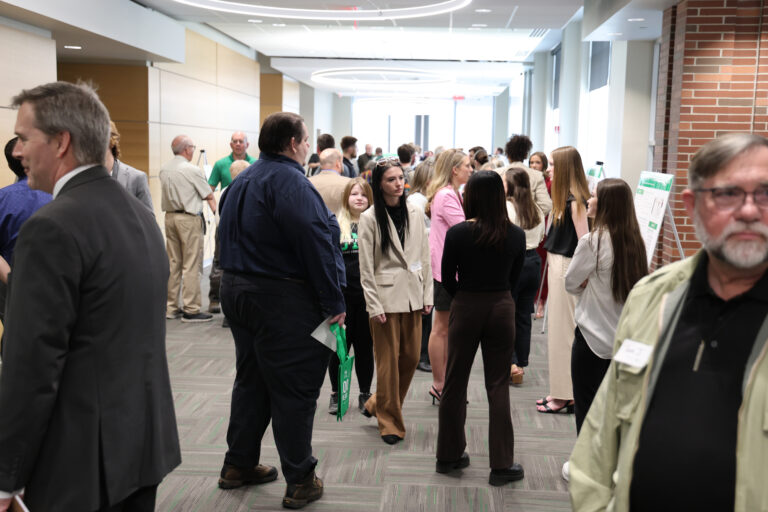Soldiers team with Med School for realistic training
National Guard flight medics learn trauma skills at UND School of Medicine & Health Sciences

Flight medics expanded their trauma skills as a team at the UND School of Medicine & Health Sciences (SMHS) earlier this month.
The six medics, all members of the North Dakota National Guard Delta Company 1-112th Aviation Battalion, based in Fargo, took advantage of the physician assistant program and the Simulation Center at the SMHS.
The idea began when an alumnus of the UND physician assistant (PA) program, now with the National Guard, contacted Jay Metzger, an assistant professor of physician assistant studies and a U.S. Army veteran who has worked in emergency and trauma medicine. The medics were seeking training that fit their mission, which more often involves aiding civilians with trauma than combat.
Metzger made arrangements to provide training in cooperation with the PA program and the Simulation Center. The medics spent about nine hours at the School, even working through lunch as they advanced their skills in trauma, cardiac, and airway management in UND’s gross anatomy lab and Simulation Center.
“The simulation manikins mimic what we may see in the field,” said Sgt. Melissa Pappas, who is also a paramedic. “We had state-of-the art training, and it was nice to see realistic cases rather than learning on a computer. It increases my confidence in treating patients.”
“This is great training,” said Staff Sgt. Sean Knodel, the readiness noncommissioned officer for 1-112th’s Delta Company. Knodel also works as a paramedic.
“Being able to go into the lab and see 3-D anatomy instead of textbooks is instrumental to our learning,” he said. “And having faculty train us in anatomy and physiology helps us if we’re deployed or sent on a mission.”
They also appreciated training together.
“Training as a team keeps our squad integrity together,” said Pappas.
“It’s nice to tap into local resources like the UND medical school and to train as a group,” said Knodel. “We’re usually sent out of the state separately for training.”

Deep learning
The incredibly lifelike manikins were used to simulate cases the medics might experience while on duty.
“We were able to give them trauma, cardiac and pulmonary experiences,” said Tim Shea, simulation coordinator at the School and a former paramedic. “We simulated everything from practicing surgical airways to inserting chest tubes.”
Shea said they offered “just-in-time” training, with classroom instruction followed by practice on the simulators.
“We adapted the simulation sessions to meet the needs of the medics,” said Shea. “They used their own cardiac monitors and defibrillators on our manikins. This builds muscle memory and ‘deep learning.’ The just-in-time training reinforces learning in a safe environment. We aim for the most realistic training possible.”

Serving the state
The PA program offered the training at no charge as part of their service mission, and the Simulation Center was reimbursed for supplies.
“We’re excited about the opportunity to serve our state’s military,” said Jeanie McHugo, associate professor and chair of the School’s Department of Physician Assistant Studies. “This is a great collaboration, and we’re happy to share the skills and resources we have at the School. We hope to do more of this in the future.”
“We are part of the state,” said Jay Metzger. “This is one of our missions, to serve the people of North Dakota, including the National Guard.”
There is a longstanding history with the PA program and the military, said McHugo.
The training also is an example of UND meeting the educational needs of military personnel and veterans, as laid out in Goal No. 6 or the One UND Strategic Plan.
The physician assistant profession, celebrating its 50th anniversary this year, began when military medics returned from Vietnam with medical skills but without a civilian role in health care. The profession was created in 1967 to allow such veterans to be part of the health care workforce.
UND’s physician program began soon after that, admitting its first class in 1970. Physician assistants are licensed to practice medicine as part of a team with a medical doctor. They conduct physical exams, diagnose and treat illnesses, assist in surgery, and write prescriptions.
“As faculty, we feel and have respect for our historical connection with the military,” said McHugo.


